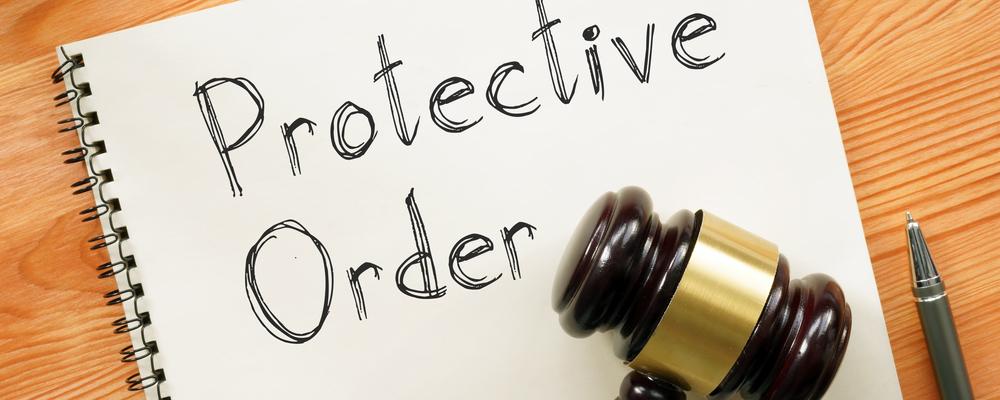1425 McHenry Road, Suite 204, Buffalo Grove, IL 60089
●Free Initial Consultation
Lake County Orders of Protection Lawyer

Protective Orders Attorney in Northbrook, IL
In Illinois, domestic violence is taken very seriously, and orders of protection are often sought in cases where a person has been accused of abuse or harassment. These court orders, which are often referred to as "restraining orders" or "protective orders," can drastically affect a person's life, their living situation, and their relationships with family members. If you have been accused of domestic violence or abuse, an experienced attorney can help you understand your rights and options related to an order of protection while ensuring that you take the correct steps to defend against any criminal charges you may face.
At the The Law Offices of Matthew R. Gebhardt, P.C., we understand how an emotionally-charged situation can lead to false accusations of abuse, and we are prepared to help you defend your rights, avoid problems that could affect the custody of your children, and protect your reputation. We have years of experience advocating for clients facing domestic violence charges, and we can help you understand the best ways to respond to accusations and avoid actions that could lead to further criminal charges. We will work diligently to protect your rights and help you resolve these matters in a way that will allow you and your family to move forward successfully.
Understanding Orders of Protection in Illinois
To receive an order of protection, a person will need to file a petition in court. This petition may be filed as part of a civil proceeding, such as a divorce or child custody case, and a judge may determine that an order of protection is appropriate based on evidence indicating that a person has engaged in abusive behavior in the past or is likely to act in ways that will put the physical or emotional health of their spouse, children, or other family members at risk. A petition for an order of protection may also be filed as part of a criminal case, such as when a person is arrested for domestic battery.
Most of the time, a person who has allegedly been the victim of domestic abuse will file a petition for an emergency order of protection. In these cases, the petitioner may appear before a judge for an emergency hearing, and the respondent will not be notified until after the order has been issued. Emergency orders of protection may last for up to three weeks, and when an order is issued, a hearing will be scheduled to determine whether additional protections are necessary. At this hearing, both the petitioner and the respondent may testify, present evidence, and call witnesses. If the judge determines that abuse has occurred or that ongoing protection is needed, they may issue a plenary order of protection, which may remain in effect for up to two years.
An order of protection will state that the respondent is prohibited from engaging in any further acts of violence or abuse against their family members or anyone else who is named in the order. It may also put other restrictions or requirements in place. These are known as "remedies," and they may include:
- The respondent may be prohibited from contacting the family members named in the order in any way. This will include calling them on the phone, sending text messages or emails, and even passing written or verbal messages through third parties.
- If the petitioner and respondent live together, one party may be granted "exclusive possession" of the residence. This may mean that the respondent will need to find alternate living arrangements while the order is in effect. However, they may be allowed to enter the home at specific times in order to retrieve their belongings. Ownership and possession of personal property may also be addressed, such as vehicles, furniture, or other items in a family's home.
- The respondent may be required to stay away from the petitioner and other family members named in the order. This may include a restriction from going near the petitioner's workplace, childrens' schools or daycares, or the homes of extended family members.
- An order may detail how child custody will be handled for any children shared by the petitioner and respondent. If the respondent will be allowed to have parenting time with their children, they may be required to have supervision present, or they may exchange children with the petitioner in public locations or through third parties.
- The respondent may be required to pay financial support to the petitioner. A parent may be ordered to pay child support to ensure that children's ongoing needs will be met, or spousal support may be appropriate if the petitioner relied on the income earned by the respondent to cover household expenses.
- The respondent may be required to repay the petitioner for any financial losses related to the alleged abuse. This may include medical bills, the costs of repairing or replacing damaged property, lost income, and moving expenses, as well as the petitioner's legal fees.
- The respondent will be prohibited from owning or possessing any firearms while an order of protection is in effect. They will also be required to turn over their Firearm Owner's Identification Card and any firearms they own for safekeeping by law enforcement.
- The respondent may be required to attend counseling, which may include ongoing treatment from a psychiatrist or psychologist, treatment for substance abuse, or programs meant to help prevent future domestic abuse.
A violation of any of the terms of an order of protection is a criminal offense that could result in further consequences, including fines and/or imprisonment. These violations could result in the extension of an order or more severe restrictions being put in place. An offender could also be arrested and charged with a Class A misdemeanor, and if they are convicted, they may be sentenced to up to one year in prison. Violations of orders related to child custody, including removing or concealing a child from the other parent, may result in Class 4 felony charges, and a conviction could result in a sentence of one to three years in prison.
Contact Our Lake County Order of Protection Defense Lawyer
If you have been accused of domestic violence or are facing an order of protection, it is essential to contact a qualified criminal defense attorney as soon as possible. An experienced lawyer can help protect your rights and ensure that any remedies imposed by the court are fair and reasonable. At the The Law Offices of Matthew R. Gebhardt, P.C., we can provide legal advice on how best to respond when faced with accusations of domestic abuse, and we will represent you in hearings related to an order of protection or other criminal proceedings. Contact us at 847-239-4703 to set up a free consultation today.

















